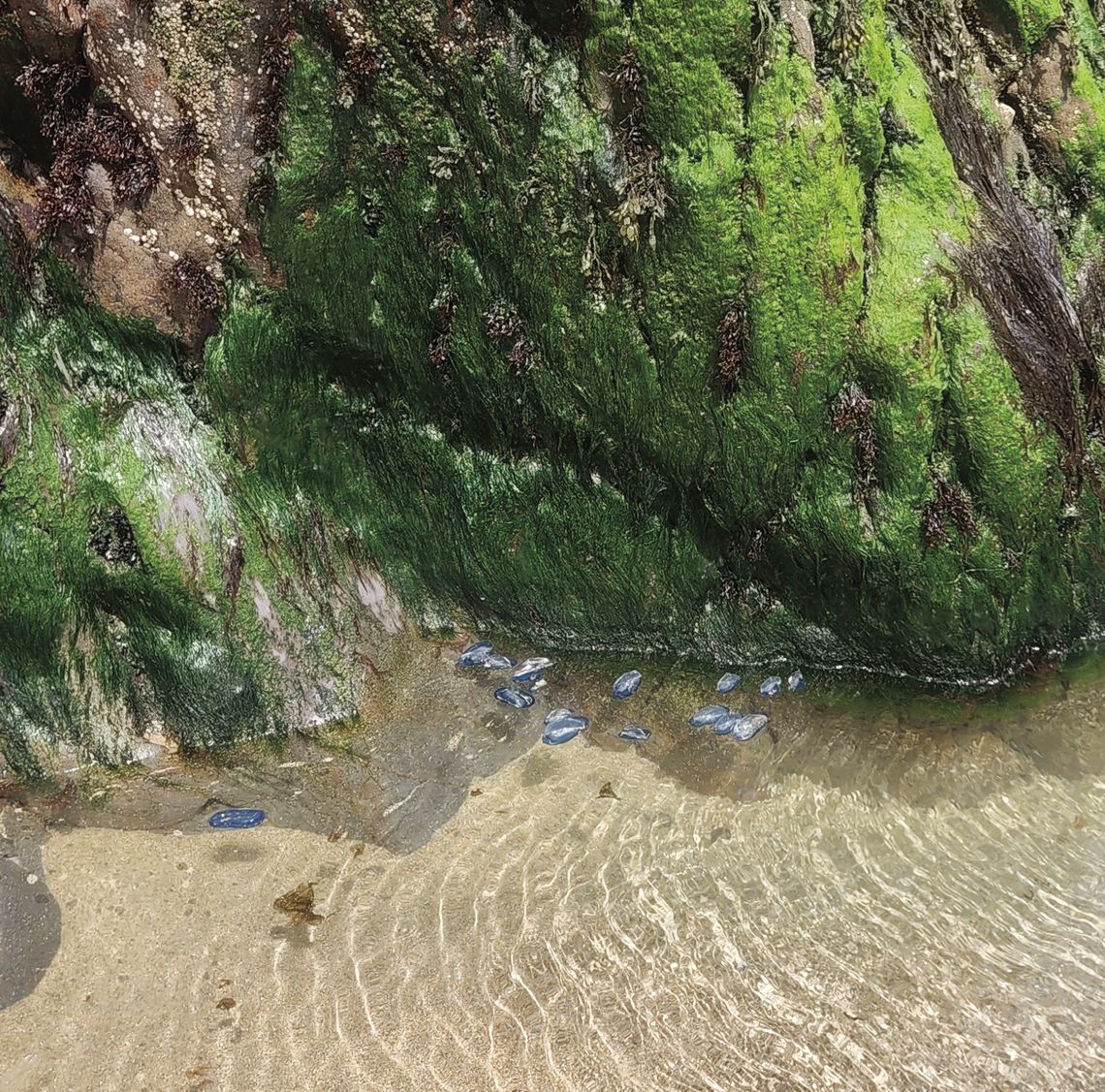War
In visits to the beaches of Galveston, I have come across what looked to be inflated plastic bladders with numerous dark strings attached.
I was informed each bladder was a stranded Portuguese man-of-war and I was told they could sting like the devil.
Indeed, after further research, I discovered this creature can be deadly.
A fleet of floating bladders makes for an impressive sight, looking a lot like miniature ships. In fact, this is how they got their common name some 300 years ago when English sailors spotted a number floating off the coast of Portugal. They thought each bladder looked a lot like a miniature Portuguese galleon, a ship that once ruled the seas in that area. Hence the name.
These bladders are somewhat like the tip of an iceberg since a lot of its mass is hidden below the surface. It trails a web of fishing tentacles that stream down as deep as 60 feet to entangle and sting unwary prey.
These tentacles are studded with thousands of stinging cells that secrete a poison almost as deadly as that of a cobra. The poison attacks the nervous system and for most small fish, and larger planktonic animals caught in these tentacles, death comes instantly.
There have been cases where humans died after being stung and there is no antidote for the poison. However, common rubbing alcohol can relieve the pain and some natives in the Bahamas believe urinating on the afflicted area will help.
The man-of-war bladder is about 8 to 12 inches long and is filled with a gas, mostly carbon monoxide, which is supplied by a gland. This fearsome floater does have one natural enemy: The loggerhead turtle. This huge amphibian loves to swim into fleets of men-of-war and gobble them up in huge mouthfuls.
The multiple stings inflicted on the turtle do not seem to be much of a bother. What’s a little poison when you are really hungry?




